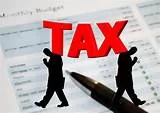
Chairman of the Presidential Fiscal Policy and Tax Reforms Committee, Taiwo Oyedele, has dismissed claims that all Nigerians must obtain a Tax Identification Number (Tax ID) before opening or maintaining bank accounts, stressing that the requirement applies only to taxable persons and businesses.
In a post on his X handle, Oyedele explained that the newly enacted Nigeria Tax Administration Act (NTAA) mandates “taxable persons”, those who carry out trade, business, or economic activities for income generation, to register with the tax authority and obtain a Tax ID.
“Banks and financial institutions are required to request a Tax ID from taxable persons. However, individuals who do not earn income and are not taxable are not required to obtain one,” he clarified.
Oyedele said the policy is not new, recalling that the Finance Act of 2019 already required a Tax Identification Number (TIN) for opening business accounts since January 2020. The NTAA, he noted, simply harmonises the system by replacing multiple identifiers with a single Tax ID.
For ease of compliance, he explained that individuals’ National Identification Number (NIN) and companies’ Corporate Affairs Commission (CAC) registration number will serve as their Tax ID, reducing duplication. Existing TINs remain valid, while new applicants can process theirs online or at tax offices without any charges.
“The Tax ID is not a physical card, but a unique number linked to your identity. Nigerians should avoid touts or unofficial agents claiming to issue Tax ID cards,” Oyedele cautioned.
The law also extends to non-resident companies operating in Nigeria, as well as government-owned enterprises and agencies at all levels. Nigerians in the diaspora can also obtain a Tax ID using their NIN for banking or investment purposes in Nigeria.
By January 1, 2026, taxable persons who fail to register may be unable to operate bank accounts, insurance, pension, or investment accounts, with penalties applicable under the NTAA.
Oyedele stressed that the reform is designed to simplify identification, reduce loopholes, and promote fairness in Nigeria’s tax system.
“For most ordinary Nigerians, there is no extra burden because their NIN or CAC number will serve as their Tax ID. The goal is to ensure that those who earn taxable income contribute their fair share while low-income citizens remain protected,” he said.
The Presidential Fiscal Policy and Tax Reforms Committee advised Nigerians to rely on official government channels for accurate information on the new tax laws
 Premium News
Premium News